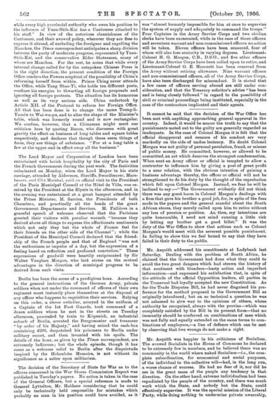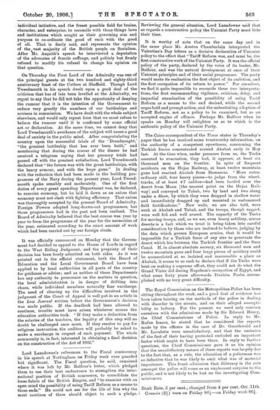Mr. Asquith was happier in his criticisms of Socialism. The
avowed Socialists in the House of Commons he declared to be extremely few in numbers, and he believed there was no community in the world where naked Socialism—i.e., the com- plete subordination, for economical and social purposes, of the individual to the collective will—had, in the long run, a worse chance of success. He had no fear of it, nor did he see in the great mass of the people any tendency in that direction. On the other hand, extreme individualism had been repudiated by the people of the country, and there was much work which the State, and nobody but the State, could effectively supervise. It was the special mission of the Liberal Party, while doing nothing to undermine private ownership, , individual initiative, and the freest possible field for brains, character, and enterprise, to reconcile with these things laws and institutions which sought as their governing aim and purpose to co-ordinate the good of each with the good of all. That is finely said, and represents the opinion of the vastmajority of the British people on Socialism. After Mr. Asquith's speech he interviewed a deputation of the advocates of female suffrage, and politely but firmly refused to modify his refusal to change his opinion on that question.















































 Previous page
Previous page